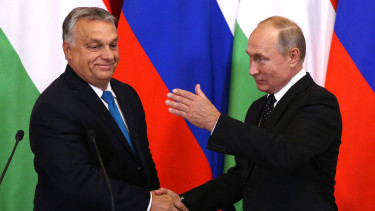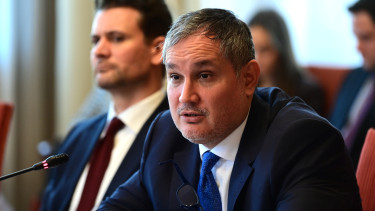The Vaccination Games – Israel vs. Hungary

A little bit of background
While less than 60% of the Hungarian population are inoculated against COVID-19, only a couple of thousand people a day go to get their shots.
School starts in September and only a quarter of those in the 12-17 age group have been vaccinated. The government announced a vaccination campaign for school children for the last days of August, while it’s clear they will not build full immunity overnight.
As the number of new daily confirmed cases has started to rise, experts have been warning the fourth wave may be upon us. Some say it is going to hit in September or October. Others, however, have been sounding the alarm for months. Some say the petering out of the third wave only masked the start of the fourth at the end of May, and that epidemiological data transpired the beginning of the fourth wave as earl as in July.
Yet, the country – along with its government and residents – apparently remains oblivious to the threat:
- no coronavirus-related restrictions whatsoever are currently in place;
- a four-day festival with tens of thousands attending is about to take place (20 August, founding of the state celebrations);
- they are expecting about one million people for the International Eucharistic Congress, including many elderly people, including those that are not vaccinated or received Chinese Sinopharm vaccine, nearly a quarter of whom (above 60 years of age) have no antibody protection, according to the initial results of previous coronavirus antibody tests in Budapest.
- the more contagious Delta variant continues to spread and is expected to become the dominant strain, with EU health officials predicting it will make up 90% of all cases across the bloc by the end of August;
- the government is organising a hunting exhibition for between 25 September and 14 October. (The event linked to the bloody hobby of Deputy Prime Minister Zsolt Semjén costs Hungarian taxpayers more than 76 billion forints (!). He told RTL Klub in May that most of the funds are spent on the rebuilding of the exhibition site Hungexpo and organising the fair would cost ‘only’ about HUF 10 billion.)
- while the cabinet is running a ‘national consultation’ campaign with billboards featuring emojis aimed at George Soros, Brussels, former PM Ferenc Gyurcsány, and migrants, there is no sign of plans for when (not if) the fourth wave in the pandemic hits.
Israel vs. Hungary
Israel has been a trailblazer in the post-pandemic world, largely returning to business-as-usual in May following one of the world’s most successful vaccination campaigns. It is now struggling with a surge of new COVID-19 cases, but is relentlessly trying to contain the fast-spreading wave of infections, keeping up its vaccination rate high.
A pilot overnight inoculation drive in Tel Aviv was extended to ten cities throughout the country a few days ago. Meanwhile in Hungary: vaccinations are to be put on hold in the entire country between 20 and 22 August.
What follows is a lot of charts and numbers, but bear with us.
On 17 August 2021, Israel authorities diagnosed 8,252 people with coronavirus infection, the highest number for six and a half months (since 3 February).
The positivity rate of about 150,000 tests was around 6.0%, also unprecedented for months. There are more than 59,000 active cases, 578 of whom are in serious or critical condition. The country had 6,708 coronavirus-related deaths since last February.
The vaccination campaign is steamrolling ahead, authorities administer shots to those over 60 years of age with their second booster dose (third dose in total).
The two countries have similar populations: Hungary 9.63 mn, Israel 9.33 mn. There are 5.5 million fully vaccinated people in Hungary and 5.43 mn in Israel. And that’s where the similarities stop.
Israel administered more than 94,000 COVID-19 shots on 17 August. Hungary had 6,000 people vaccinated. Their respective 7-day rolling averages are 77,235 and 5,500.
Hungary has 30,045 coronavirus-related deaths officially; Israel has 6,723.
Hungary had performed 8,294 COVID-19 tests on 17 August; Israel had more than 143,000.
The USA and the United Kingdom were also added to the charts below as two other points of comparison. The longer periods are to show the overall picture and the shorter ones are to depict the current situation better.
Before the charts, here’s a snapshot of how the global pandemic looked like on 17 August this year and on the same day in 2020.

Overall, there are three times more active cases and 2.5 times more new confirmed cases per day (and rising), with 1.5 times more deaths and a lot more contagious variant. The percentage of COVID-19 patients in serious or critical condition (in ICUs) has been rising over the last 45 days or so, while the average age of the infected has been dropping, as young people are often not vaccinated, and the new variants exploit their vulnerability.
And let’s not forget that the world is protecting itself against SARS-CoV-2 a lot better than a year ago. For starters, it has vaccines. And it has learned a lot in respect of the necessary measures (well, some countries did).
Oh, wanna see how this August compares with the last August? No problem. Hold on to your hats!

Charts on vaccinations


How's testing going?


A successful management of the pandemic? Sure.


Cover photo: Getty Images






